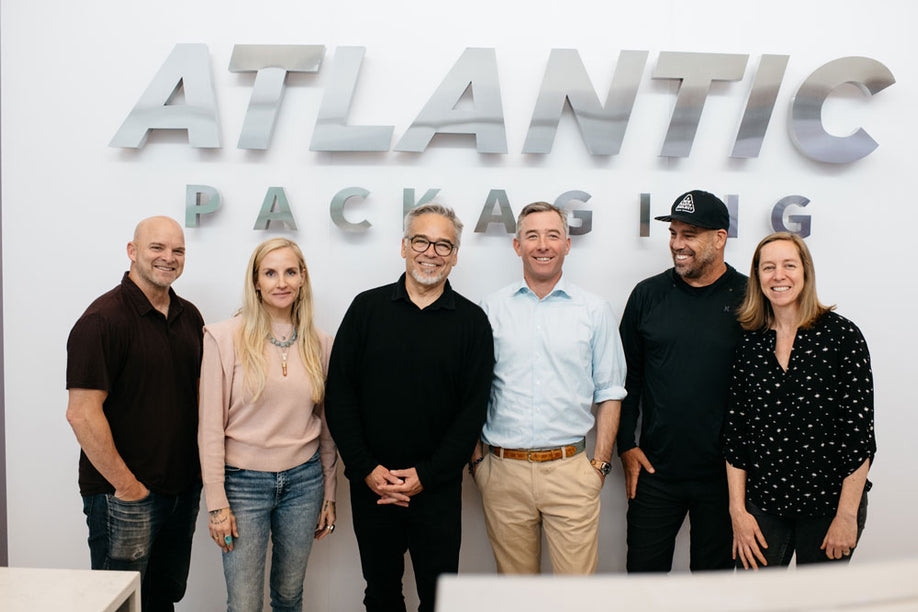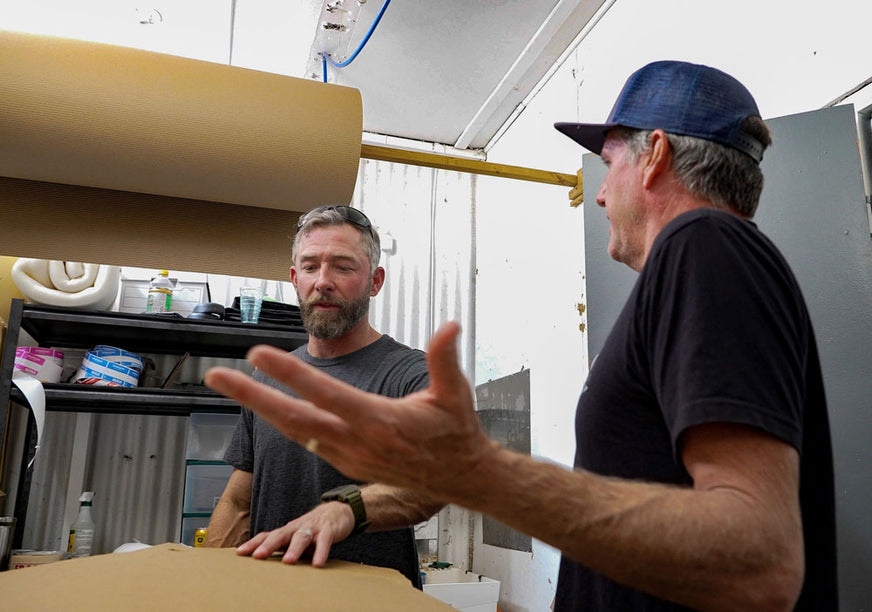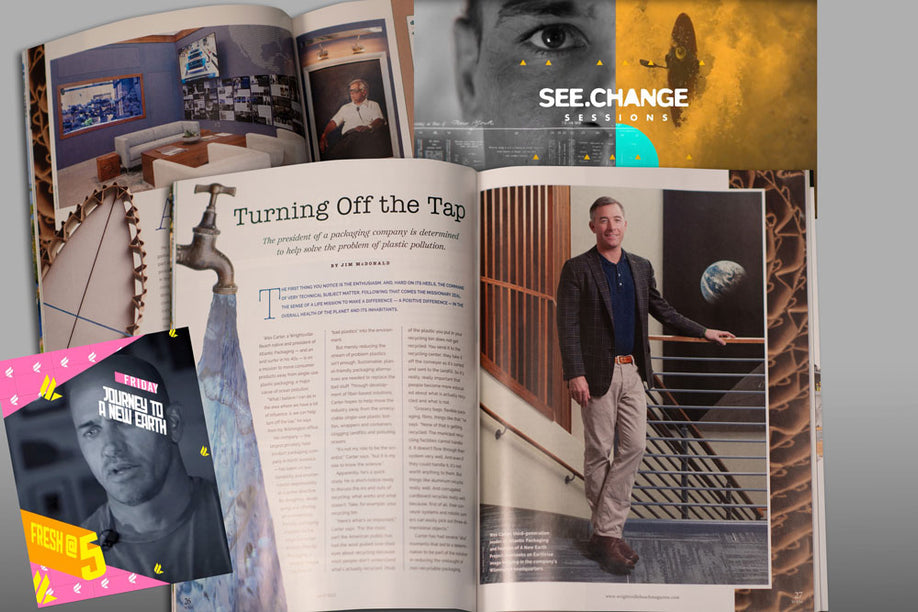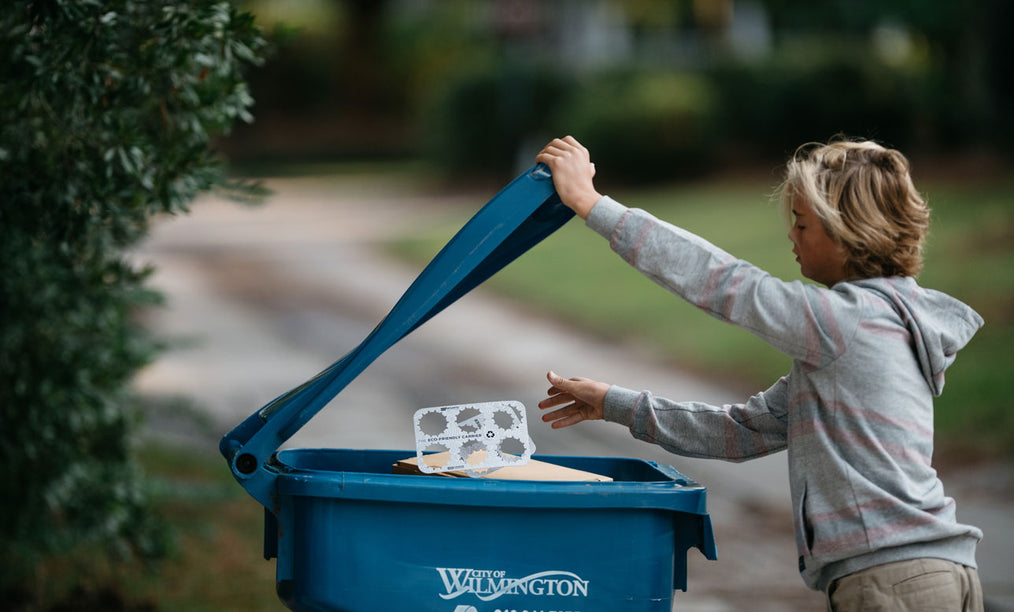In late June of this year the California legislature passed SB54, a bill that can only be described as a broad, ambitious assault on the exploding plastic pollution problem. The idea of tackling this problem enjoys widespread public support, and that showed, as the bill passed with a bipartisan majority of 70%.
SB54 is multi layered. It will impact all packaging materials and the producers who use them, but the biggest target is single-use plastics. You can read more about the bill here and here.

Senator Ben Allen, of California's 26th District, is the bill's author. So who better to sit down with to gather more insights on how it will be implemented, and what he hopes the impact will be.
(This interview was lightly edited for clarity.)
For those who aren't familiar with EPR, can you start with a brief summary of the moral case for it?
Sure. EPR stands for Extended Producer Responsibility.
Up until now, the people with the most control over a product had literally no accountability associated with the end-use of that product.
For them, there's been no skin in the game, no accountability. And the rest of us, we’re all picking up the tab, and it's become an enormous problem.
The City of Los Angeles used to make $5 million a year revenue associated with selling their recycled materials. They're now losing $1 million a year.
So the idea is let's hold the producers responsible, get them involved in the conversation, get them engaged in in helping to come up with solutions
We used to send our recycling off to China but so much of it was ending up in the landfills or much worse, incinerated, or in rivers, or as ocean waste. Finally, the Chinese said, 'Hey, we don't want this junk anymore. The stuff you're sending us is far too contaminated. Enough is enough.'
So now there's also a massive new effective tax increase that's being passed onto regular ratepayers by local governments and the waste haulers as they continue to try to put Band-Aids on this problem.
And so what we're trying to do with EPR, Extended Producer Responsibility, is to say to the producers, 'Look, guys, you are a big part of causing the problem. You can and must be a big part of creating the solutions. You got the tools at your disposal.'
And the beauty of this system is that through Producer Responsibility Organisations, (PROs) businesses - the industry folks who know their products, and their markets, and their consumers--this gives them an opportunity to rethink their products and come up with more sustainable alternatives that are going to actually have a fighting chance of truly being recycled.
Because very little is getting recycled right now.
You know, so little of it is truly recyclable and so much of it is heading straight to the landfill under the best of circumstances.
And the current system, it's depressing how little of the plastic is actually getting recycled. It's depressing how little the plastic is being reused. It's depressing how much of it is ending up in the environment. And it's also depressing how much of it is ending up in the landfills. And we're all paying the cost.
So the idea is let's hold the producers responsible, get them involved in the conversation, get them engaged in in helping to come up with solutions.

It sounds like we're in need of recycling 2.0.? Would you agree? And if so, does this bill facilitate that?
We absolutely need recycling 2.0 because it is broken. And we need to recognize that that not all items are ultimately fit to be recycled. And we need to move away from those items.
It's about being more honest about recycling. It's about focusing on the recycling that is really feasible and viable and moving away from a recycling model for those products that aren't.
So for items that are highly recyclable and we can figure out a system to collect and sort and turn them into new products, we ought to do that. We ought to double down.
But for all those items that aren't - and there are a lot of items that we put the chasing arrows on recycling symbol on - that really don't have a fighting chance of being recycled in the real world. We need to find a better alternative.
It's about being more honest about recycling. It's about focusing on the recycling that is really feasible and viable and moving away from a recycling model for those products that aren't.
And the beauty of what we're trying to do here is our bill is at least partly premised on the idea that it shouldn't require a PhD in recycling, you know, to understand how to behave in a pro-social way.
This bill raises 5 billion dollars over the next 10 years. Is that for refurbishing the recycling infrastructure?
Everything from infrastructure improvements and build out, but there's also a big chunk of money that's going to go toward mitigating the impact of plastic pollution, a lot of money going to disadvantaged communities to help those communities deal with the long range, long term impacts of both the production and post consumer use. All the pollution that's been created as a result of our obsession with plastics.
Ideally, they're going to come up with the most cost effective ways of meeting the the strong goals and mandates that are in the bill
Most of the funding for infrastructure is going to come from the PROs directly. And there's there's some real wisdom to this, right? Because ideally, they're going to come up with the most cost effective ways of meeting the the strong goals and mandates that are in the bill.
And I say that not because I want them to find the most cost effective way, because we want this to be something we can scale, right? I mean, there are other jurisdictions, other places that are much more likely to adopt this sort of model if businesses are able to show they've been able to do it in a cost effective manner here.
California's is the fifth largest economy in the world, which means the impact of this bill will likely be felt globally. One argument producers of single-use plastics make is that they provide clean, affordable food and water to marginalized communities, especially people in developing countries. If the intent of this bill is to effectively raise the price of single-use plastics, they argue the added cost will be regressive tax on those communities. Is that a valid point?
To the extent that pricing is involved, we just want the pricing to reflect the true cost of the products. You know, it's actually poor people who are most impacted by the negative impacts, both of plastic production and plastic pollution.
And you look at what's happening in the Global South, you know, and for low income communities, it's atrocious the conditions that they're having to live under and the air pollution associated with the incineration of plastic. And so from our perspective, it's about it's about true costing.
From our perspective, it's about it's about true costing
At the end of the day, a lot of the water bottle plastic is highly recyclable. We just need to create an infrastructure for it to be collected and recycled. And then I'm okay with it. I'm not some anti plastic crusader for the sake of it. I'm happy to support plastic products that are more sustainable, especially if they're providing important services like water provision and that kind of thing.
But we want to make sure that it's not just theoretically recyclable. We want to make sure it's actually recycled and it's not ending up in the waterways, and harming the very environment that so many lower-income people in the global south really depend on.
And this bill is incentivizing investment into the next generation of sustainable products.

It also forces producers to take a look at the more sustainable options already on the table, correct? We know a lot of producers want to do the right thing, but they can't if the competition doesn't come along.
We're telling them we know you can do better. We know you have the technology to do better right now. And we're going to push you to do it and move toward more sustainable alternatives.
I'll give you an allegory, I suppose. You know, here in Los Angeles, kids growing up in the seventies, you know, we were growing up with half the lung capacity of kids growing up in rural parts of the country because of how bad our air was. You couldn't even see the Hollywood sign on many, many days because of how bad the smog was.
And the industry knew they could do better, they just weren't being forced to. A lot of the businesses had already done the R&D. You know, the new cleaner burning engines were right on our at our fingertips. But it was too expensive to transition if nobody else was going to. And you didn't want to harm your market advantage.
It took government coming in and saying, 'Hey guys, we know you can do better. You need to do better. We've got a crisis on our hands with public health and we're going to force you to do it.'
It took government coming in and saying, 'Hey guys, we know you can do better. You need to do better
And the interesting thing is the automobile industry adapted. It's not as though we put the automobile industry out of business. It's just that we forced them to produce much cleaner burning cars. And we have much cleaner air today as a result. And that's what we're looking to do here.
And by doing so, we’re going to be helping fuel investment in the next generation of packaging that’s better for the environment while still meeting the business and consumer needs of industry.
And by forcing the issue you’re facilitating the scaling of more sustainable packaging?
We know it's going to that. Ultimately, scaling is such an important part of this.
It will not only incentivize greater investment into the development of these products, but will also lower the price of these products and make them much more competitive with the cheap virgin plastics that are out there.
Ultimately, scaling is such an important part of this
And that will also help ease the transition toward EPR programs in other parts of the country that might be more skeptical.
One historical complaint we've heard from sustainability directors is that there's zero communication between producers designing packaging the people working at material recovery facilities (MRFs). In other words, producers aren't designing with the end-use in mind. How does EPR address that problem?
So the MRFs and recyclers will have a seat in the stakeholder advisory board. They will play an incredibly important role because they're the ones who the Producer Responsibility Organizations are going to have to work with when it comes to the collection and sorting of these materials.
And they're ultimately, I think, going to be almost like a partner with the PROs. And, you know, and they're going to work with the PROs to come up with systems that are just more coherent.
The spirit of the bill dictates the harder something is to recycle, the higher the fee will be, and vice-versa. But the bill establishes targets for source reduction and recyclability. Our sustainability director mentioned there's a built-in tension around source reduction and recyclability. For example, producers could reach a source reduction target but their package still ends up in a landfill. Or they use more material to reach a recycle target. Which would get more favorable treatment from in the fee structure?
The tradeoffs that are inherent in your question, ultimately, we didn't want to be overly prescriptive. Cal Recycle, which is the department that we entrust with overseeing this area of work, will have to go through a pretty intense cost-benefit analysis associated with how we know what to prioritize.
It's ultimately about just having less waste out there and and more and more environmentally friendly, sustainable alternatives
And I think ultimately we want both, right? We want greater reusability and source reduction, waste reduction. We also, you know, we want higher recycling rates. It's ultimately about just having less waste out there and and more and more environmentally friendly, sustainable alternatives.
The Environmental Quality Committee that I chair will almost certainly be playing an important role in helping to steer that conversation, and ensure strong implementation of the law, and holding people accountable to the principles of the law.
Who were your biggest allies in this? Who else should we be talking to if we want more context on this issue?
Oh gosh so many. One really interesting group that a lot of people sometimes forget to talk to you are local governments. League of Cities, local governments, they were with us from day one because they saw this problem coming.
It's local governments that are ultimately left holding the bag in our system. And they are the ones who have to deal with just the influx of this crap and all the costs associated. So they're an important voice.
They tell a story that folks will be compelled by, because ultimately local governments are the ones who have to raise people's rates.








